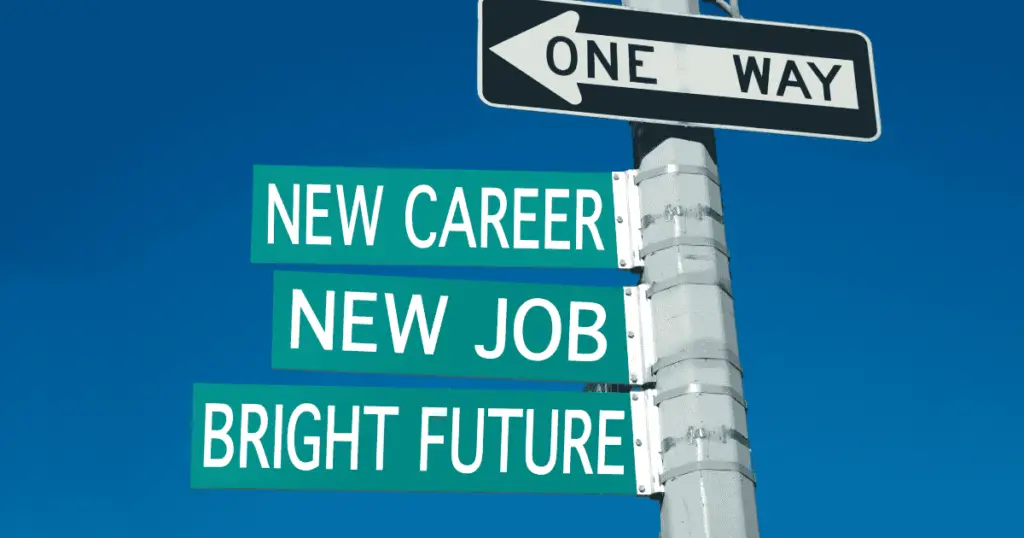
Navigating career transitions can feel like walking a tightrope and leaving a job is never easy. On one hand, staying in an unsatisfying role may hinder your personal and professional growth. On the other, making a change requires careful planning, particularly when explaining past job moves to potential employers.
If you’re considering a career change or want to better address your employment history during interviews, you’re in the right place. This article will explore the most common professional reasons for leaving a job, how to frame them positively, and how to tackle the stigma around job-hopping. Plus, we’ll share real success stories to inspire your next steps.
Table of Contents
- 5 Professional Reasons for Leaving a Job
- How to Explain Your Reasons for Leaving a Job
- Step Into Your Next Career Move With Confidence
5 Professional Reasons for Leaving a Job
Ultimately, there are many valid professional reasons for leaving a job, and you shouldn’t feel embarrassed to discuss them in an interview. However, because each situation is unique, there isn’t a single “best” answer to why you left your last job. That said, some reasons are widely accepted and even viewed positively by hiring managers. Here are five strong professional explanations that can help you frame your departure effectively.
1. More Responsibility and Better Career Growth
Hiring managers want candidates who are hungry to expand their skills and take on new challenges. If your current role isn’t providing the resources to learn or opportunities for professional growth, it is important to communicate this to a potential employer in a way that highlights your ambition and drive.
When discussing your reasons for leaving, focus on how your previous role helped you gain valuable experience, advance your skills, or take on greater responsibilities. Then, explain how you have reached a point where you need new challenges to continue growing.
As you talk about the job you are applying for, emphasize your readiness for increased responsibilities and how the position aligns with your long-term career goals. Be clear about the skills you want to develop and how you plan to achieve that growth in your new role.
2. A Career Change

Wanting to move in a new professional direction doesn’t make you indecisive; it shows your dedication to finding meaningful and fulfilling work. By outlining your career development plan and long-term goals, you can demonstrate your commitment and drive, rather than appearing as someone who left a job without a second thought.
If a career change is your reason for leaving, you’re not alone. A recent Robert Half survey found that 40% of Gen Z workers and 35% of Millennial workers are most likely to make a career change in the next six months. This highlights how common and valid such transitions are in today’s workforce.
If you are considering leaving a job for similar reasons, it’s important to frame your move in a positive light. Emphasize how you discovered your new passion, whether through learning opportunities, additional projects, or earning certifications. Explain that while your current company doesn’t offer a role that aligns with this new path, you are seeking an opportunity where you can fully apply and grow these skills.
3. Company Reorganization
Company restructuring can often lead to cutbacks or shifts in team dynamics, sometimes creating challenges that impact job satisfaction. If this is your reason for leaving, provide specific examples of how the new structure has affected your role, what steps you have taken to adapt, and why the changes no longer align with your career goals.
Highlighting the challenges of your new duties after restructuring can demonstrate your investment in your work, problem-solving skills, and willingness to be a team player. Emphasize any efforts you made to navigate the transition and why, despite your best efforts, the new structure isn’t the right fit for you.
Finally, show that you have researched your potential employer’s company structure. Explain how their team setup aligns with your skills and career goals, and why you believe you will thrive in their structure.
4. Better Work-Life Balance
If a better work-life balance is one of your reasons for leaving a job, be upfront with hiring managers while framing it as a win-win situation. Emphasize that greater flexibility on their part will result in higher productivity and engagement on yours. In fact, a recent Robert Half survey found that 76% of workers prioritize flexibility in when and where they work, highlighting the growing importance of work-life balance in today’s workforce.
When discussing this with potential employers, position yourself as a candidate who values efficiency and job satisfaction. Explain that while you have been highly productive in your previous role, the rigid schedule has made it difficult to maintain a healthy balance.
Emphasize that you are seeking an opportunity that offers more flexibility, allowing you to continue performing at your best while ensuring long-term well-being. This approach reassures employers that your motivation is not about working less, but about sustaining high performance in a supportive environment.
5. Relocating to a New City
Relocating is a clear and valid professional reason for leaving a job. If you are moving to a new area and looking for opportunities there instead of requesting remote work, it is important to communicate this effectively. Explain the reason for your move, highlight the skills and experience you bring, and show how both the job and location align with your long-term goals.
In a time when many candidates prioritize remote work, demonstrating your commitment to relocating can set you apart. Hiring managers may see this as a sign of dedication and adaptability, especially if they prefer an in-office or hybrid team.
When framed correctly, this reassures them that you’re invested in both the role and the company’s long-term success.
How to Explain Your Reasons for Leaving a Job

Follow these steps to learn how to explain your reasons for leaving a job to interviewers:
Think of Why You Want a New Role
Before your interview, take time to reflect on why you’re seeking a new role. Write down your reasons for leaving your previous position and what you’re looking for in your next opportunity. Consider factors like your values, career aspirations, passions, and what excites you about the company and role you’re applying for.
Once you have a clear understanding, frame your response to highlight your strengths and align with the employer’s needs. Choose reasons that showcase why you’re the best fit for the organization.
For example, if you’re leaving because you want to work on more team-based projects, explain that you’re eager to collaborate with colleagues and take on more dynamic, team-oriented work. This demonstrates your enthusiasm for teamwork and signals to hiring managers that you can contribute positively to their work environment.
Remain Positive When Answering
When discussing why you’re leaving a role, focus on the positives even if your reason for leaving is due to a negative experience. Hiring managers want to see resilience and a forward-thinking attitude. Rather than dwelling on frustrations, highlight what you’ve learned from your previous job and how those experiences will help you succeed in your next role.
For example, instead of saying, “My current duties are dull,” reframe it as:
“I’m looking for a role that presents new challenges and allows me to apply my problem-solving skills.”
Provide a Short Statement
When answering this question, keep your response around two to three sentences. Ensure your answer is clear, relevant, and provides enough reasoning without unnecessary details. If your response starts leaning negative, shift the focus toward why this new role is the right fit for you.
Example: “I’ve gained valuable experience, but I’m looking for a position that offers more opportunities for growth. This role aligns with my skills and career goals, and I’m excited about the potential to contribute and develop further.”
Be Honest and Professional
Honesty is key when discussing why you left or are leaving a job. A truthful and well-articulated response helps interviewers understand your work values and what you’re looking for in a new role. Additionally, employers may contact your previous or current company for references or verification, so ensure your explanation is consistent with what you’ve communicated before.
Being professional in your response also reflects positively on your character. Even if you had challenges in your previous role, frame your departure in a way that emphasizes growth and opportunity rather than dissatisfaction.
Example: “I enjoyed my time at my previous company and gained valuable experience, but I’m looking for a role that aligns more closely with my long-term career goals.”
Step Into Your Next Career Move With Confidence
Switching jobs or changing careers can be daunting. By clearly understanding your reasons for leaving, framing them in a positive light, and showing how you’ve grown, you can turn any past transition into a stepping stone for future success.
Remember, career growth isn’t linear, and each step (or pivot) offers an opportunity to learn more about what you truly want from your professional life. Stay confident, stay positive, and ensure your next move aligns with both your ambitions and values.
Have you recently navigated a career transition? Share your tips, challenges, or success stories in the comments below!



